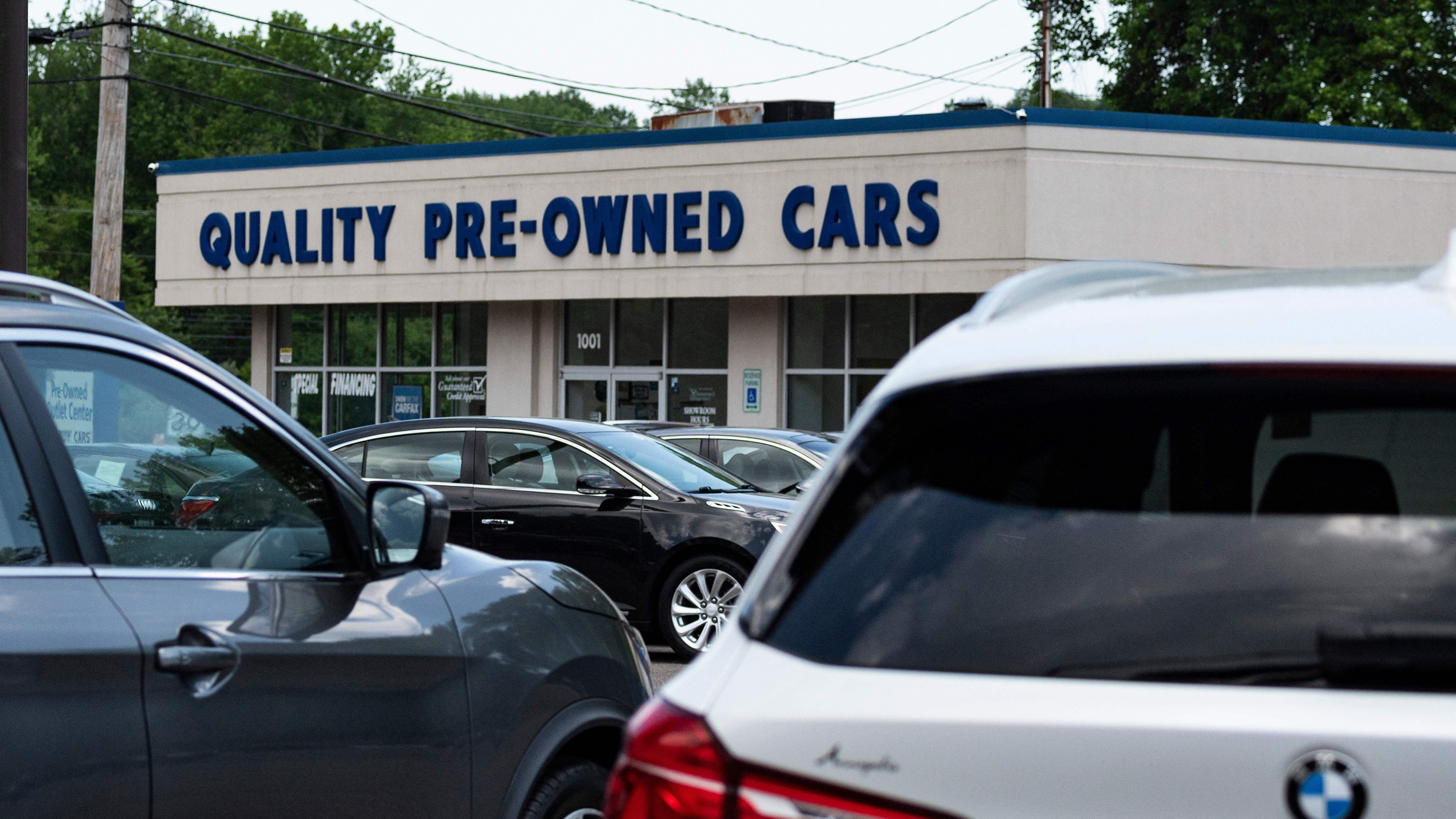Car Sales People Have Little Left To Do
The pandemic has exposed how little they add to the process.
You've probably bought a car from a dealership before, or maybe you are lucky enough not to have. The pre-pandemic process was something like 90 percent awkward small talk with a salesperson, and then 10 percent signing a bunch of forms with someone in finance who actually seemed to work for a living. The salesperson, needless to say, was usually just there to get in the way. In pandemic times, that has become all the more evident.
That has also meant that there are fewer sales people in the aggregate, as dealers have realized efficiency gains, and many customers these days shop online, as The Wall Street Journal reports. For the salespeople remaining, it sounds like the job these days is less haggling and a lot of explaining things. Along the way, sales people have discovered a new concept, which is trying to make themselves useful.
Nick Downey, a 32-year-old car salesman at White River Subaru in White River Junction, Vt., said he used to spend days showing customers around the lot, where between 100 and 150 new vehicles were parked and ready to buy. Now, he monitors the phones and fields questions in online chat rooms from customers about details of the few cars available and when new orders might come in.
He says he has become a pro at explaining the new-car landscape stemming from the chip shortage.
"The majority of business is generated from the internet," he said, adding that his pay has held steady as higher car pricing offsets the lower volume he sells. "We are starting to work our way away from that 'we're out to get the customer and get the upper hand' stigma. We're just trying to give a good experience."
I do not mean to insult the work of people like Downey, but even in the old days any honest car salesperson would tell you that they were superfluous, more so perhaps in America because cars here are bought out of basic necessity, given the state of our public transportation. Often when someone is buying a car, in other words, it is a less a process of weighing the pros and cons of brands and segments than simply needing a vehicle right now, at the lowest price.
Anyway, one basic tenet of capitalism is that if a job doesn't really need to exist then eventually, it won't. And, what do you know, the system is doing its thing.
Employment at franchised car dealerships in the U.S. fell from 1.15 million in February 2020 to fewer than 900,000 two months later, according to the National Automobile Dealers Association. Some jobs were added back in the summer of 2020, but employment at dealerships has been stalled at around 1.08 million workers for the past year, according to data from the association.
Dealerships also are cutting back on their finance managers, said David Rosenberg, owner of New England chain DSR Motor Group. His dealerships trimmed the number of business managers—who earn about $110,000 annually between salary and commission—by roughly 40%. He once employed about five managers per dealership; now that number is about three, he said.
"With the chip shortage there's less volume to handle and because profit levels are so high, it's a good time to experiment with staffing," he said.
If you're buying a car in 2021, it's likely that you're doing most, if not all of your research and browsing online, which is probably better for everyone. And certainly better than the old system, which was showing up to a dealer and being like, "So, whatcha got?"
